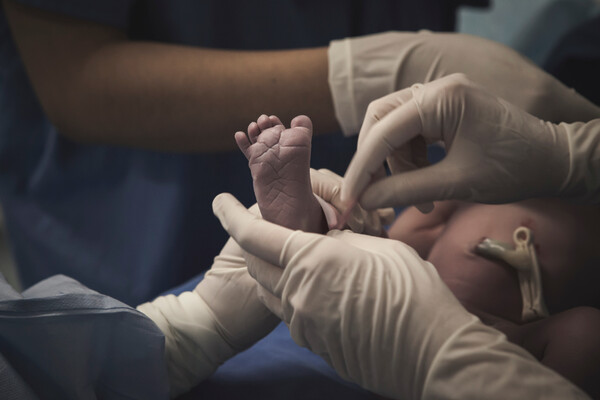Severe decline in NICU physicians amid prolonged government-doctor conflict
기자명 Kim Eun-young
Published 2024.09.19
Physicians who treat critically ill pediatric patients, including high-risk newborns, are rapidly declining in number amid the prolonged government-doctor conflict caused by the push to increase the medical school enrollment quota.
As of June, only seven trainee doctors were left in neonatal intensive care units (NICUs), and specialists had dropped by eight persons from the previous year.

The protracted healthcare crisis has led to the loss of doctors to treat critically ill pediatric patients, including high-risk newborns. (Credit: Getty Images)
According to data submitted to Rep. Park Hee-seung of the Democratic Party of Korea by the Ministry of Health and Welfare, only seven trainee doctors were left in NICUs in June this year.
Only five of the 51 hospitals had trainee pediatricians. They were Jeju National University Hospital, with one trainee doctor, Soon Chun Hyang University Hospital Cheonan (two), Busan St. Mary's Hospital (one), Daegu Fatima Hospital (two), and Hallym University Sacred Heart Hospital (one).
The number of junior doctors working at NICUs has been declining sharply due to the low birthrate and the avoidance of pediatrics. The number of junior pediatricians working at NICUs decreased by 59.8 percent over the past five years, from 122 in 2019 to 111 in 2020, 95 in 2021, 88 in 2022, and 49 in 2023.
Some hospitals have seen a decrease in the number of specialists working in NICUs this year. In June, the number of specialists fell from six to five at Chonnam National University Hospital compared to the same month last year, from four to three at Chungbuk National University Hospital, from four to two at Jeju National University Hospital, from seven to four at Soon Chun Hyang University Cheonan Hospital, and from three to two at Ilsin Christian Hospital.
In contrast, the number of critically ill pediatric patients requiring intensive care in the NICU, including low birth weight babies, premature babies, and multiple births, is on the rise.
The number of births decreased by 24 percent from 302,676 in 2019 to 230,028 last year. However, the share of high-risk newborns, such as those with low birth weight, increased from 19.2 percent of the total in 2019 to 22.9 percent in 2023, with about one in five needing intensive care.
“The ripple effects of the medical crisis caused by the Yoon Suk Yeol administration have spilled over to neonatal care. Newborn children can be at a crossroads between life and death if they don't receive proper treatment in time,” Rep. Park said. “No newborn patient should be left unattended due to a shortage of medical staff.”
According to data submitted to Rep. Park Hee-seung of the Democratic Party of Korea by the Ministry of Health and Welfare, only seven trainee doctors were left in NICUs in June this year.
Only five of the 51 hospitals had trainee pediatricians. They were Jeju National University Hospital, with one trainee doctor, Soon Chun Hyang University Hospital Cheonan (two), Busan St. Mary's Hospital (one), Daegu Fatima Hospital (two), and Hallym University Sacred Heart Hospital (one).
The number of junior doctors working at NICUs has been declining sharply due to the low birthrate and the avoidance of pediatrics. The number of junior pediatricians working at NICUs decreased by 59.8 percent over the past five years, from 122 in 2019 to 111 in 2020, 95 in 2021, 88 in 2022, and 49 in 2023.
Some hospitals have seen a decrease in the number of specialists working in NICUs this year. In June, the number of specialists fell from six to five at Chonnam National University Hospital compared to the same month last year, from four to three at Chungbuk National University Hospital, from four to two at Jeju National University Hospital, from seven to four at Soon Chun Hyang University Cheonan Hospital, and from three to two at Ilsin Christian Hospital.
In contrast, the number of critically ill pediatric patients requiring intensive care in the NICU, including low birth weight babies, premature babies, and multiple births, is on the rise.
The number of births decreased by 24 percent from 302,676 in 2019 to 230,028 last year. However, the share of high-risk newborns, such as those with low birth weight, increased from 19.2 percent of the total in 2019 to 22.9 percent in 2023, with about one in five needing intensive care.
“The ripple effects of the medical crisis caused by the Yoon Suk Yeol administration have spilled over to neonatal care. Newborn children can be at a crossroads between life and death if they don't receive proper treatment in time,” Rep. Park said. “No newborn patient should be left unattended due to a shortage of medical staff.”
No comments:
Post a Comment